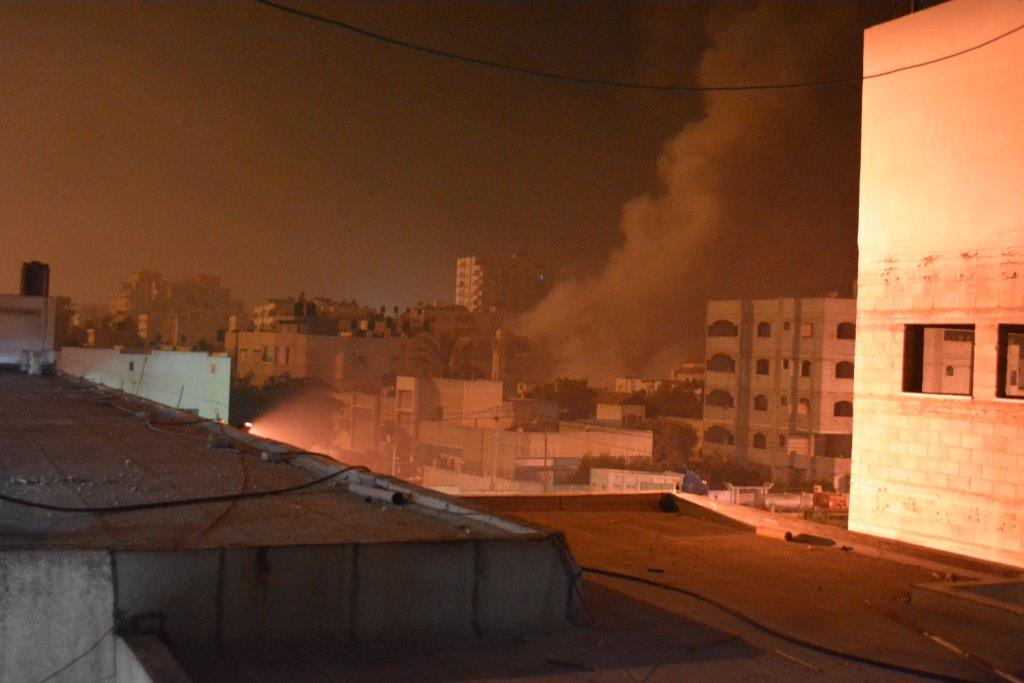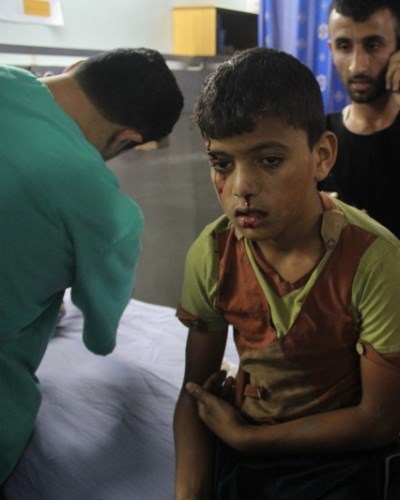Category: Gaza
-
Gaza: Black sky turns orange
30th July 2014 | Charlie Andreasson | Gaza, Occupied Palestine Since July 25th, international volunteers, including activists from the International Solidarity Movement (ISM) and other groups have begun a constant protective presence in various locations at the al-Shifa Hospital. Below is a journal extract from an ISM volunteer during his shift at the hospital on July 28th. There had…
-
Gaza Ministry of Health: ‘Muslim holy days marred by genocide in Gaza’
29th July 2014 | Gaza Ministry of Health | Gaza, Occupied Palestine The Ministry of Health Gaza is pained to express its deep sadness and outrage at the Israeli attacks on Gaza on our holy days of Eid al-Fitr. In the last 24 hours, 120 people have been killed, bringing the total to 1,156. Particularly distressing…
-
Trapped in Beit Hanoun
27th July 2014 | Charlie Andreasson | Gaza, Occupied Palestine We raced towards the hospital in Beit Hanoun, our mission was to assist in the evacuation of the hospital with the same name. The Israeli forces had already destroyed 13 ambulances in a row. We had to work fast. But we were soon trapped, Fred and…



